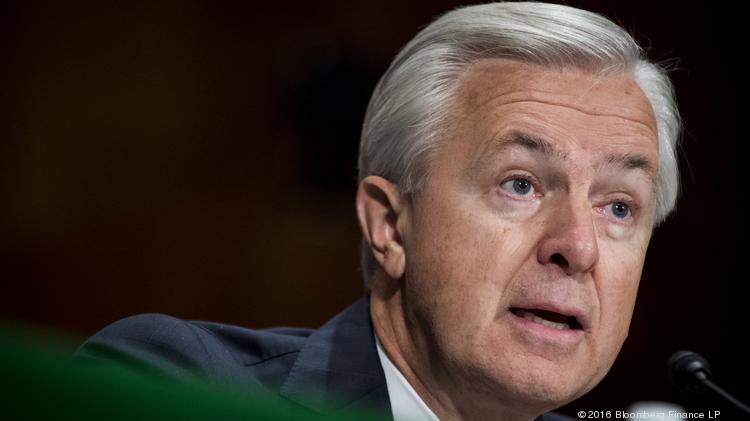Article originally published in the American City Business Journals on October 17, 2016
On Oct. 12, five weeks after it was announced that Wells Fargo was fined $185 million for unethical business practices, John Stumpf stepped down as chairman and CEO of Wells Fargo.
On Oct. 13, The Wall Street Journal published an editorial headlined, “Wells Fargo’s political sacrifice: CEO John Stumpf is offered up to the Beltway Gods.”
The Wall Street Journal praised Stumpf for navigating Wells Fargo (NYSE: WFC) through the banking crisis of 2008-2009 and called him “… one of the most successful American CEOs of recent times, because [Stumpf] produced some $149 billion in profits and [the bank] saw an increase in market cap of $124 billion.”
Quoting the Journal, “Mr. Stumpf has already forfeited $41 million in unvested equity grants … Now he is paying with his job, as the bank tries to appease the political lords who under Dodd-Frank have become more or less co-owners of our largest banks.”
With all due respect to The Wall Street Journal editorial board, their editorial made no comment about the toxic culture within the bank that encouraged fraudulent and unethical consumer banking practices, nor Stumpf’s inability to change that culture and stop those practices, which occurred over at least a five-year period.
The editorial made no mention of allegations made in a Sept. 21 CNN Money report headlined, “I called the Wells Fargo ethics line and was fired.” Reporter Matt Egan wrote that the news organization spoke with a number of Wells Fargo employees who were fired for reporting unethical practices on the ethics hotline and to the bank’s human resources department.
Egan spoke with a former Wells Fargo human resource manager who said, “The bank had a method in place to retaliate against tipsters … It could be as simple as monitoring the employee to find a fault, like showing up a few minutes late on several occasions.”
No employee should ever fear retaliation for reporting unethical practices or any other issue to a company’s hotline.
Reports to the hotline are customarily received by a third-party firm and reported to the audit committee of the board. What action did the Wells Fargo audit committee take when they learned about unethical practices at bank branches?
Stumpf’s inability to change a culture that rewarded the creation of 2 million bogus bank accounts and the sale of products that customers don’t need undermined his ability to lead Wells Fargo. He would not have been an effective CEO of the bank moving forward.
The Wells Fargo board has now separated the positions of chairman and CEO, appointing lead director Stephen Sanger as chairman of the board and Wells Fargo President and Chief Operating Officer Timothy Sloan as the new CEO.
This was the right board governance decision for the bank, a structure that has been adopted by many companies. Sanger can focus on the avalanche of lawsuits and Congressional investigations that are being launched. Sloan can focus on the changes that are necessary to regain the trust of the bank’s customers.
Sloan had held the position of COO since Nov. 2015. One can question why he didn’t put a stop to the unethical business practices within Consumer Banking during the year he was COO. Will Sloan have the trust and respect of Wells Fargo employees?
All CEOs need to be held accountable by their boards for tone and culture — in addition to financial results. Had the Wells Fargo board held Stumpf accountable for ending the toxic sales culture within the bank branches five years ago, the bank could have avoided damage to its reputation and the ire of its stakeholders.
Stan Silverman is the former president and CEO of PQ Corp. He also is founder and CEO of Silverman Leadership and is vice chairman of the board of trustees of Drexel University. Silverman earned a Bachelor of Science degree in chemical engineering and an MBA degree from Drexel University. He is also an alumnus of the Advanced Management Program at the Harvard Business School.

